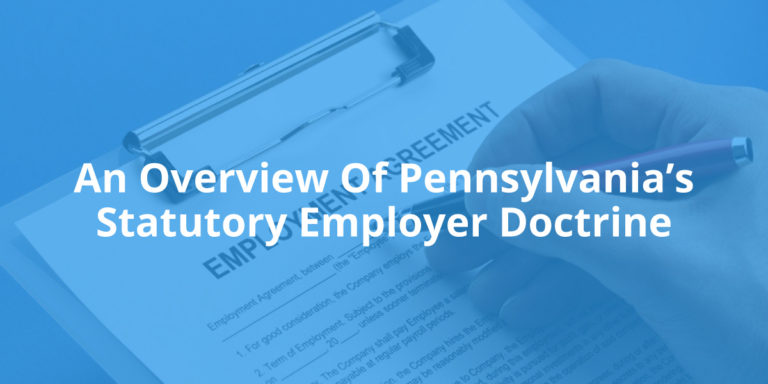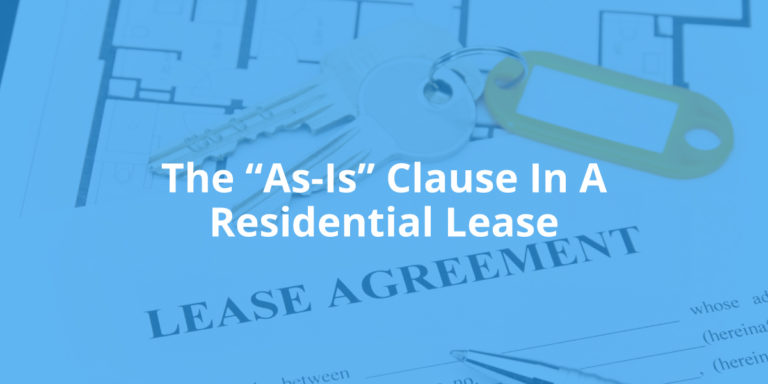After the Philadelphia personal injury, you likely have a lot of questions. When another party caused your injury, you have a personal injury claim. Mattiacci Law represents plaintiffs who suffered all kinds of injuries, from vehicle accidents to medical malpractice. We get results.
Some of the most frequently asked questions include the following:
How Much Is a Personal Injury Claim Worth in Philadelphia?
The value of a personal injury claim in Philadelphia depends upon the cost of medical treatments, the effect on income, the impact of the injury on life generally, whether punitive damages apply, and whether comparative negligence is a factor.
Personal injury victims in Philadelphia have the right to compensation for past and future medical bills, such as emergency room treatment, surgeries, and rehabilitation. Further, they have the right to a settlement or award that makes them whole regarding any lost income. Also, they have the right to repair or replacement costs for any damaged property.
General damages compensate for pain and suffering, emotional distress, the loss of quality of life, and loss of consortium.
Punitive damages rarely apply in personal injury cases. Courts award them when the defendant acted outrageously to deter others from engaging in similar misconduct.
Comparative negligence substantially affects a Philadelphia personal injury claim’s value. According to Pennsylvania law, courts may find one party fully liable or split the liability. If the court finds you have partial responsibility, it reduces your damages according to its view of your percentage of fault.
Because these many factors apply, personal injury claims have a wide range in value. On the low end, they may be worth $10,000 to $15,000. Most severe injuries result in medical costs, lost income, and general damages that propel the value into the five- or six figures. Extreme injuries, such as those causing paralysis or death, can be worth hundreds of thousands or millions of dollars.
How Much Are the Legal Fees for a Philadelphia Personal Injury Case?
Mattiacci Law’s Philadelphia personal injury attorneys work on contingency. This fee structure requires clients to pay nothing upfront. They pay attorneys fees only when they collect a settlement or award, so they face no risk of paying attorney’s fees and receiving no compensation.
Contingency fees also cover litigation expenses. For instance, these agreements include filing fees and court reporter expenses.
.
This fee structure levels the playing field between individual plaintiffs and deep-pocketed insurance companies. Insurers have multi-million dollar budgets for legal defense. Most individuals have nowhere near the means necessary to fund a personal injury case upfront. Without contingency fees, personal injury plaintiffs would face severe disadvantages.
For example, without contingency fees, only well-heeled people would have access to the court system after a personal injury. This would force them to accept the insurance company’s determination, whether a claims denial of an inadequate settlement amount. Because personal injury lawyers work on contingency, they can take the insurer to court to win just compensation.
How Long Does a Personal Injury Settlement Take in Philadelphia?
As with personal injury case values, the length of cases varies widely. But most personal injury cases settle before the trial date, so one to two years provides a generic estimate. However, you should consult a personal injury attorney for a clearer understanding of the likely length of your claim.
Some claims settle without the need to file a lawsuit. These cases may end in a matter of weeks or months. Often, the insurance company makes a settlement offer, and the personal injury lawyer engages in negotiations. If negotiations succeed, there is no need to take the case to court.
But insurance adjusters often claim they cannot exceed a certain level far below the claim’s value, making a lawsuit a necessity.
The court process requires patience. During the initial stages, the plaintiff’s attorneys can gather evidence and force the defense to furnish any proof that favors your case. In addition, the discovery process allows each side’s legal team to question opposing witnesses.
Usually, the discovery process helps personal injury attorneys build more robust cases. As more evidence piles up against the defendant, the insurance company becomes more amenable to settling. Once they see they have a slim chance of winning, insurance companies offer attractive settlements to avoid the expense of a trial and appeal.
Do I Have a Personal Injury Case in Philadelphia If I Am Partially At Fault for My Injury?
Yes, personal injury victims have the right to compensation despite being partly responsible for the accident. While this is good news for many plaintiffs, the downside of Pennsylvania’s comparative negligence law is that the court must reduce your award according to its finding of your percentage of fault.
Unsurprisingly, defense attorneys see comparative negligence as a tool for reducing settlements and awards. Each percentage of fault they can place on the plaintiff decreases the payout proportionally. As a result, defense strategies often focus on finding justifications for comparative negligence.
For instance, the defendant may have caused an auto accident by making a negligent turn. Because the plaintiff had the right of way, he has a strong case against the defendant. To counter this, the defense may claim the plaintiff has partial liability because he was speeding, even when evidence is scant or nonexistent.
Defense lawyers often use comparative negligence arguments to gain negotiation leverage. Your personal injury lawyer fights back by developing evidence and arguments that repel comparative negligence arguments. The less blame they succeed in placing on you, the more your settlement of award.
Do Many Philadelphia Personal Injury Cases Go to Trial?
The overwhelming majority of personal injury cases end in a pre-trial settlement. Personal injury attorneys take cases they can win because they work on contingency. Further, during discovery, they amass evidence that is difficult or impossible to refute. Accordingly, insurance companies realize that going to trial would be throwing good money after bad.
However, sometimes defense lawyers roll the dice and opt to try the case instead of settling out of court for a reasonable sum. Often, they do this in high-value claims in the hope the jury buys their arguments for lower compensation. Additionally, they may intend to appeal the verdict on technical grounds or ask the appellate court to reduce the award.
When this occurs, Mattiacci Law fights all out for our clients. We never give in to false comparative negligence claims and other weak defenses. When the defense remains unreasonable, we get justice at trial.
What Are Depositions in a Philadelphia Personal Injury Case?
Depositions are a vital component of the personal injury case discovery process. They consist of a series of interviews where opposing counsel questions witnesses. The witnesses must answer under oath, and a stenographic record is kept.
These face-to-face interviews come after written questions to witnesses from opposing counsel, called interrogatories, which also require recipients to answer under oath. Additionally, attorneys may demand witnesses affirm or deny material facts of the case in writing before depositions proceed.
Depositions often motivate the defense to settle the case. Based on the discovery up to that point, they may decide that depositions are unlikely to help their case. At that point, they may view the considerable expenses of depositions as a bad investment and offer an attractive settlement.
Also, information revealed during depositions may spark interest in settling the case. Often, defense witnesses perform poorly or must disclose information damaging the insurance company’s case. As a result, going forward with a settlement is a better course of action than a trial.
The plaintiff’s witnesses often perform well and demonstrate the strength of the case, giving the defense more incentive to settle.
When Are Settlement Conferences?
Settlement conferences are meetings between the two parties to identify common ground and negotiate a settlement without needing a trial. Trials are about determining the facts—the court tasks juries with examining the evidence and deciding which side to believe. When the facts of the case plainly show the defendant’s liability, trials unnecessarily monopolize the court’s time.
Judges may order a pre-trial settlement conference to facilitate an agreement between the parties. When compensation is more disputed than facts, settlement conferences tend to succeed. However, the case may proceed to trial if material facts remain at issue.
What Types of Accidents Qualify for a Personal Injury Claim in Philadelphia?
The law requires the defendant to have a duty of care and be negligent in that duty for a personal injury claim to prevail. Additionally, the defendant’s actions must have caused harm to the plaintiff, and the claimed damages must result from the defendant’s negligence.
Under this framework, almost any type of accident is actionable, provided someone with a duty of care was negligent. Common types of accidents that result in personal injury claims include the following:
- Car accidents
- Motorcycle accidents
- Truck accidents
- Bicycle accidents
- Slip and fall cases
- Defective product injuries
- Medical malpractice
- Assault and battery
- Construction accidents
- Other accidents resulting from another’s negligence
Serious injuries wreak havoc on the victims’ lives. They result in heavy medical debt, lost income, pain and suffering, and other adverse impacts. Under Pennsylvania law, victims can seek compensation when another person or organization exercised negligence that caused their injury.
Most cases settle out of court after a personal injury attorney builds a strong case and negotiates with the insurance companies. However, a few cases go to trial.
Consult with a Philadelphia Personal Injury Lawyer
Whether your claim settles quickly or requires extensive litigation, Mattiacci Law gets results. Our team of dedicated personal injury specialists have a track record of success and the ability to take your case as far into the process as necessary. Contact Mattiacci Law for a free personal injury consultation.
Related Content: How to File a Personal Injury Lawsuit in Philadelphia
Categories
- Bicycle Accidents
- Brain Injuries
- Burn Injuries
- Bus Accidents
- Car Accidents
- Construction Accidents
- COVID-19
- Dog Bites
- Drunk Driving
- Injury Insurance
- Medical Malpractice
- Motorcycle Accidents
- Pain and Suffering
- Pedestrian Accidents
- Personal Injury
- Premises Liability
- Product Liability
- Rideshare Accidents
- Slip and Fall
- Truck Accidents
- Worker's Compensation
- Wrongful Death



